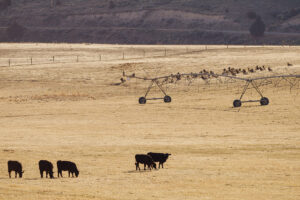With his 2006 budget, President Bush appears to be championing fiscal responsibility. For environmental policy, this change offers hope for new directions.
PERC’s Report Card 2004 on Bush’s environmental policy, issued last fall, evaluated the administration on its success in adopting free market principles such as reliance on markets, support for decentralization, and greater accountability of officials. We gave the administration a C+. Most of the improvements were marginal and often undermined by politically driven subsidies and excessive government spending.
Nevertheless, we found some bright spots. For one, the Environmental Protection Agency began switching from technical specifications for cleaning up water to focusing on the condition of streams and rivers. This has led to trades among polluters (“dischargers”) so that more cleanup can be attained at lower cost.
Under the direction of John Graham, the Office of Information and Regulatory Affairs began demanding agencies to justify their regulations—a clear reform.
And the administration supported the fee demonstration program, which allows four government land agencies-the Bureau of Land Management, the Fish and Wildlife Service, the Forest Service, and the National Park Service-to raise recreation fees and to keep the proceeds for use on high-priority local projects (instead of sending the money to the U.S. Treasury). In December Congress extended this law.
Now the president wants to eliminate state grants from the Land and Water Conservation Fund, a step that may encourage the states to be more responsible and self-sufficient. Bush also hopes to cut back on agricultural subsidies. Here are a few other things that his administration could do:
Transferable Fishing Quotas. The federal government regulates coastal fisheries, but at least one third of the nation’s fisheries are overfished. Individual fishing quotas (IFQs, also called individual transferable quotas or ITQs) are a solution. Individual fishermen are allocated a percentage of the total allowable catch of fish—say, one-tenth of one percent. Assured that they will be able to catch this amount, fishermen stop the destructive “race to fish” that leads to overfishing, waste, and danger to fishermen. The Bush administration should recognize these quotas as property rights and implement them.
River-basin Water Quality Markets. The nation has gone about as far as it can go in improving river water quality by regulating “point sources” of contaminants such as industrial and municipal treatment plants. Now we must involve others, including farmers, whose fertilizer washes into streams without much control. The president should push for legislation that encourages and expands trades between “point” and “nonpoint” sources.
Transferable Grazing Permits. In the West, the federal government should allow trades of existing grazing permits between willing sellers and willing buyers. If environmental groups want to buy the permits and retire them, they should be allowed to try.
Water Marketing. Growing demands for municipal water around the country make water availability a national concern. The administration should identify areas, such as the Klamath River basin in southern Oregon, where clearer definition of rights to water could form the basis for trades. As water users weigh the value of the bids they receive, they will treat water less wastefully.
These are our nominations for immediate environmental action.
Jane S. Shaw is editor of PERC Reports and Bruce Yandle is interim dean of Clemson University’s College of Business and Behavioral Science and a senior fellow of PERC.





